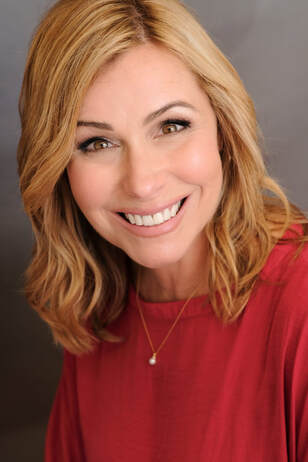
International speaker JEN GRISANTI is an acclaimed Story/Career Consultant at Jen Grisanti Consultancy Inc., Writing Instructor for Writers on the Verge at NBC, and a former twelve-year studio executive, including VP of Current Programming at CBS/Paramount. Jen is the author of three books, Story Line: Finding Gold in Your Life Story, TV Writing Tool Kit: How To Write a Script That Sells, and Change Your Story, Change Your Life: A Path To Your Success. Since launching the consulting firm, Grisanti has worked with over 1000 writers specializing in television, features, and novels. Due to her expertise and mentorship, over one hundred of her writers have staffed on television shows, and eighty pilots have sold, including six that went to series. We spoke recently about her new presentation, "The Wound That Drives Us," its worldwide acclaim, as well as her favorites streaming series across borders and classic cinematic moment.
Dave Watson: Jen! What's new with you? You have a new presentation on the wound that drives us. What's it about?
Jennifer Grisanti: Hello! It's a pleasure to connect with you. Yes, I do have a new presentation, "The Wound That Drives You." It is about adding fiction to your truth. It goes into a few of the story tools that I am currently working with screenwriters on, including what I call "The Triangle of the Wound" and how the external plot provides an opportunity for the protagonist to heal the internal dilemma.
DW: Do you think people draw strength from their wounds, leave them open to grow, so to speak, or are there some past experiences which people must forget?
JG: Writing is healing. Healing is ongoing throughout our lifetime. We have to do the emotional work to work through our wounds and flaws. Story allows us to see how other people, fictional characters, do this. The gift is that in the story, the protagonist almost always achieves the goal. So, it is inspiring for the audience to see that the dream can happen despite a series of obstacles and escalating obstacles. Through the arc of growth for the character, the audience feels the story. This transformation can inspire them to believe that doing the emotional work can lead them to achieve the goal.
DW: You are a sought after script consultant. Do you see themes of what people can do to their scripts before coming to you? Any issues they can fix ahead of time?
JG: I work with writers at all levels. We start at various stages in the scriptwriting process. I don't expect them to do something to their script before they come to me. I am open to doing the work with them. I like writers that are committed to doing the emotional work in life and on the page. During my consults, we talk about the internal story and the personal work, and we work on how to elevate the story to a point where no one can ignore it. This practice often comes through finding the emotional truth.
DW: You wrote two great books about storylines. During the pandemic, our stories appear to be changing rapidly. What can people do during these times? Can they think flexibly in terms of storylines?
JG: As I mention in the presentation, we are all currently experiencing a monumental wound on so many levels. It is more important now than ever to do the emotional work. Writing provides this opportunity. The page is a chance to make sense of the chaos. It is a place to go for sanctuary. What writers can do is think about their emotional arcs that they are going through in life. Then, it is about adding fiction to these arcs with the stories that they write. This way, they come from a place of emotional truth and vulnerability. This method is what will connect them to their audience.
DW: Streaming, which has gone through the roof these last five months, has extended storylines. What are some of the best or most exciting streaming stories you've seen?
JG: My current streaming obsessions include the following:
Shtisel
Fauda
Le Bureau
Giri/Haji
The Morning Show
Borgen
A French Village
The Great
Normal People
The Eddy
I love international crime shows and political thrillers. I also look for shows that have deep character moments.
DW: As do I! Some say they used to be so hard to make but they seem to flourish recently. What's next for you?
JG: I am currently working on a new product, story modules, called FINDING STORY. I will launch it in January of 2021. I am also about to start the session for the year of Writers on the Verge at NBC. I will also continue my one on one consulting. In 2021, I am speaking at a Rocaberti Writers Retreat in Italy and France. I am also speaking at a Safari Screenwriting Retreat in South Africa in September of 2021.
DW: Busy person worldwide. As you travel, what is a current favorite cinematic moment?
JG: One of my favorite scenes of all time is from The Sopranos. It was the episode before the series finale if I remember correctly. Tony and Carmela were in a big argument. While it took place in a room and did not have an immense cinematic value, the dialogue was so stunning that it stays with me. Carmela's character said things that you would think if you've ever been married, but you would never say, she says to Tony. This depth is what writing is all about. You need to push the envelope and go to places with your writing that we don't expect.
Clip: The Sopranos

